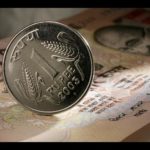 Prime Minister Manmohan Singh, who is credited with facilitating India’s economic liberalization in 1991, is currently under pressure over concerns of price rise and increasing inflation. Thanks to the economic reforms of the 1990s a color television in India is much cheaper today than it was two decades ago. However, the cost of food items has soared, forcing the consumer to spend a large portion of his/her income on essential commodities. In a country where onion prices have had a definitive impact on electoral outcomes, the UPA government has announced measures for providing relief to consumers from the sudden rise in food prices. Most of the proposed measures are criticised as populist and ad hoc.
Prime Minister Manmohan Singh, who is credited with facilitating India’s economic liberalization in 1991, is currently under pressure over concerns of price rise and increasing inflation. Thanks to the economic reforms of the 1990s a color television in India is much cheaper today than it was two decades ago. However, the cost of food items has soared, forcing the consumer to spend a large portion of his/her income on essential commodities. In a country where onion prices have had a definitive impact on electoral outcomes, the UPA government has announced measures for providing relief to consumers from the sudden rise in food prices. Most of the proposed measures are criticised as populist and ad hoc.
In a statement issued by the Prime Minister’s Office on January 13, 2011 the Government has outlined the reasons and remedies for the current round of inflation. According to the Statement, “the current bout of inflation is driven by a rise in prices of vegetables and fruits which is more difficult to manage because these commodities are not held in public stocks. The rise in prices is partly due to late rains, which affected the onion crop. There is also an underlying increase in prices of milk, eggs, meat and fish, which is the result of fast growth of the economy, leading to rising income levels, combined with the effect of several inclusiveness programme which put greater income in the hands of the relatively poor whose food consumption increases.” As a part of the solution the Government envisages increasing “agricultural productivity. Government has taken up important new schemes, and provided large budgetary support to these, with a view to boosting agricultural production not merely in cereals but also in pulses, oilseeds, vegetables and fruits, milk and milk products, and poultry etc.”
The United Progressive Alliance (UPA), which holds power in India, is focussed on fixing specific symptoms while the real cause of the problem is not receiving due attention. Increasing agricultural productivity is only a small part of the solution. India happens to be the second largest producer of onions in the world, contributing to 19% of the global produce. And yet the prices of onion hovered around $1.22 a kilo in December 2010.
The proposal of ‘stringent action’ against ‘hoarders and black marketers’ is a move directed at appeasing the public, especially when elections for the state legislatures are approaching in critical states of West Bengal and Tamil Nadu. The extensive use of fair price shops and NAFED by the government to control prices is being criticised as use of a socialist template solution for a problem that requires wider reforms.
India’s economic challenges have compounded because governments are unwilling to face the short-term political costs associated with the second generation economic reforms. The second generation economic reforms, which are unpopular yet necessary, include labour law reform, privatisation of public sector units (PSUs), elimination of agricultural subsidies, opening up retail to foreign investment. The Government tends to concentrate on rhetorically creating ‘inclusive growth’ by providing voters with entitlements to employment, food and education. According to Niranjan Rajadhyaksha, Managing Editor of Mint “the quest for inclusive growth through entitlements can be seen as a reaction to the failure to address tough issues that would ensure genuine inclusive growth: job creation and the provision of quality public services by the state.”
The pressures from rising inflation go beyond providing essential commodities to the populace. Duvvuri Subbarao, Governor of Reserve Bank of India has expressed concerns over India’s ‘surge in inflation’. The real challenge for India will be to manage inflation while supporting growth. Goldman Sachs, the US investment banking giant, has issued a short-term alert over investing in India (and China) due to the impact of rising inflation.